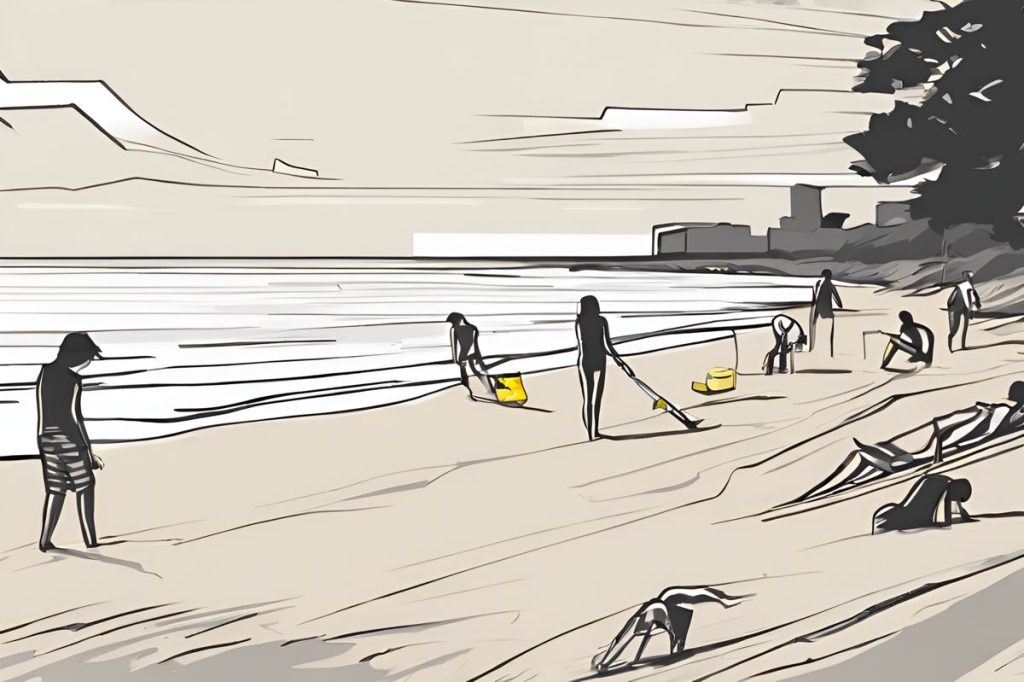Cyprus has taken bold steps to combat plastic pollution, including banning thin plastic carrier bags and single-use plastics like cutlery and straws. These measures have led to a significant decrease in plastic consumption and set an example for sustainability efforts worldwide.
What actions has Cyprus taken to reduce plastic pollution?
Cyprus has implemented several measures to combat plastic pollution, including:
1. Ban on the complimentary provision of thin plastic carrier bags.
2. Retailers required to charge for plastic bags, leading to an 80-85% decrease in use.
3. Legislation passed to ban single-use plastics like cutlery, plates, and straws.
4. Introduction of Extended Producer Responsibility for waste from tobacco products.
5. Upcoming regulations on plastic use in agriculture and waste management in the fishing industry.
Steps Towards Sustainability
Cyprus has been taking decisive action to combat plastic pollution. Recognizing the urgency of the issue, the agriculture ministry has been at the forefront, implementing policies to curtail the use of plastic items that have for too long been taken for granted. Since 2018, the country has seen a significant change, beginning with the ban on the complimentary provision of thin plastic carrier bags. Retailers are now required to charge for these bags, a simple yet effective strategy that has yielded impressive results—a drastic 80-85 percent decrease in their use across the nation, when compared to figures from 2017.
Continuing with these environmentally conscious efforts, 2022 marked the initiation of a full ban on thin plastic carrier bags at sales points, reinforcing the country’s commitment to reducing plastic consumption. The ministry’s approach is multi-faceted, targeting various plastic products that contribute to environmental degradation.
Legislation and Environment
In April 2022, the Cyprus parliament passed new legislation aimed at limiting single-use plastics. As a direct result, items such as plastic cutlery, plates, and straws have been banned entirely. This legislation is part of a broader plan to tackle the proliferation of single-use plastics within the country, including an innovative approach to the plastic waste produced by tobacco products and tobacco filters. The Regulation on the Management of Plastic Waste from these sources was enacted under Extended Producer Responsibility, ensuring that manufacturers are held accountable for the environmental impact of their products.
The ministry is not stopping there. They have announced that they will soon adopt new regulations concerning the use of plastic in agriculture, which is a significant step, considering the extensive use of plastics in this sector. Furthermore, the management of waste from fishing gear, which often includes plastic material, is also being addressed. These proactive measures reflect an understanding of the interconnected nature of various industries and their roles in the broader ecosystem.
A Positive Trend
The actions taken by Cyprus can serve as a model for other nations struggling with plastic pollution. By enforcing strict regulations and incentivizing changes in consumer behavior, the country has demonstrated that significant progress can be made in a relatively short time frame. These efforts are not just about cleaning up the environment; they are about setting a sustainable path forward for future generations, reflecting a growing global awareness of the need for environmental stewardship.
The success seen in Cyprus is a testament to the power of collective action and legislative reform. It underscores the importance of government leadership in environmental issues, proving that with the right policies and public support, it is possible to make a positive impact on our planet. As Cyprus continues to develop and implement these policies, it stands as a beacon of hope in the fight against plastic pollution, showing the world that change is achievable, one step at a time.
What actions has Cyprus taken to reduce plastic pollution?
Cyprus has implemented several measures to combat plastic pollution, including:
1. Ban on the complimentary provision of thin plastic carrier bags.
2. Retailers required to charge for plastic bags, leading to an 80-85% decrease in use.
3. Legislation passed to ban single-use plastics like cutlery, plates, and straws.
4. Introduction of Extended Producer Responsibility for waste from tobacco products.
5. Upcoming regulations on plastic use in agriculture and waste management in the fishing industry.
How has Cyprus seen a decrease in plastic consumption?
Cyprus has seen a significant decrease in plastic consumption through initiatives such as banning thin plastic carrier bags, requiring retailers to charge for plastic bags, and passing legislation to ban single-use plastics like cutlery, plates, and straws. These efforts have resulted in an impressive 80-85% decrease in the use of plastic bags across the nation compared to figures from 2017.
What legislation has Cyprus passed to address single-use plastics?
In April 2022, the Cyprus parliament passed legislation aimed at limiting single-use plastics. This legislation includes a ban on items such as plastic cutlery, plates, and straws to reduce the proliferation of single-use plastics within the country. Additionally, the Regulation on the Management of Plastic Waste from tobacco products was enacted under Extended Producer Responsibility, holding manufacturers accountable for the environmental impact of their products.
How can Cyprus’s actions against plastic pollution serve as a model for other nations?
Cyprus’s proactive measures and successful reduction in plastic consumption can serve as a model for other nations facing plastic pollution issues. By enforcing strict regulations, incentivizing changes in consumer behavior, and demonstrating the positive impact of collective action, Cyprus has shown that significant progress can be made in a relatively short time frame. This sets an example for global efforts in environmental stewardship and highlights the importance of government leadership in addressing plastic pollution.

